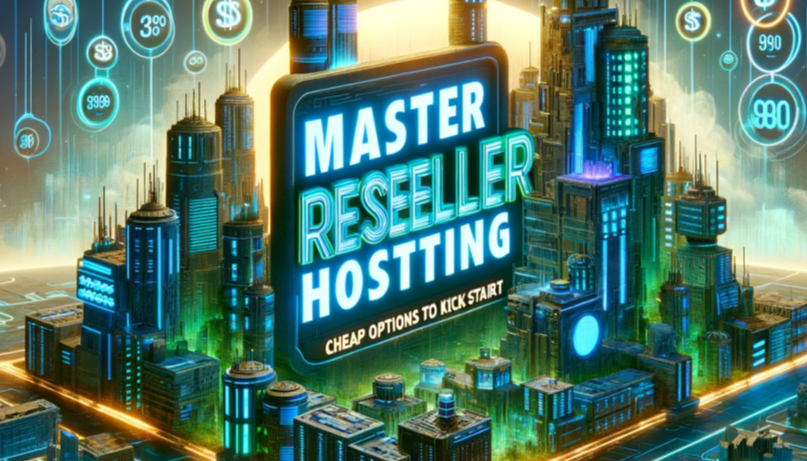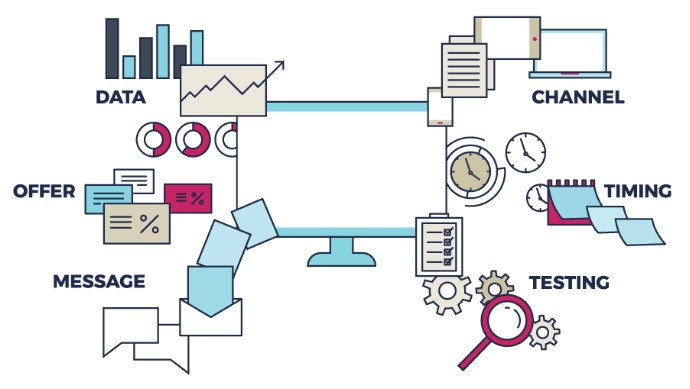Fintech Engineers Are Bringing Modern Technologies to a Legacy Industry
These days, financial institutions are adopting new technologies and undergoing digital transformations at an unusually high rate. Bob Joneson, Arvest Bank’s director of technology, has worked in the financial services industry for 15 years and calls it a once-in-several-decades kind of transformation.
At the root of this transformation is a collision between traditional banking and finance companies, and young fintech startups. Although boundaries between the two can be blurry, fintech startups pride themselves on being the antithesis of famously slow and cautious financial institutions, Joneson said.
“For many of them, there’s this spirit of, ‘We can do what the banks can’t do,’” he said. “Because of [the banks’] technical debt, they can’t be as nimble, they can’t be flexible, they can’t be as agile.”
Skills for Successful Fintech Engineers
- Fintech engineers need to balance freedom with regulation. Most engineers want to learn by being hands on and testing out new technologies and products, but in fintech that should be balanced against following regulations and protecting customer data.
- They need to be agile while caring about quality. Fintech companies still want to move fast to provide new services for customers, but that needs to be done while keeping the finances of customers secure.
- They should absorb institutional knowledge. There is a large amount of business knowledge to learn, but the most successful workers are able to work with financial analysts to build products that address the needs of customers.
- They should have knowledge of modern technologies. Financial institutions may have a reputation for legacy systems, but many companies are currently undergoing technical transformations and are hungry for modern skill sets.
Financial institutions, for their part, tend to be wary of fintech companies. Most traditional banks are older institutions that have been around for decades, if not centuries, Joneson said. Over time, they have built hard-earned reputations as secure, reliable places that individuals can feel safe handing over their money to. They feel uncomfortable with the speed and lack of institutional knowledge that fintech companies have.
But there’s actually a great variety within the fintech industry. Some fintech companies are more finance-heavy and others more tech-heavy. Some work in areas that are more regulated than others. Some companies sell services directly to end users while others court established financial institutions for customers.
Working in fintech can feel a lot like working in other industries where there is plenty of business knowledge to absorb and technology to build. But in some ways, certain challenges and concerns are heightened due to the nature of the industry, like increased attention to security, reliance on data and a sense of potential as the industry undergoes rapid technological change.
Balancing Regulation With Freedom Is a Must
Although fintech companies and traditional finance institutions have their differences, they often collaborate together. Traditional companies benefit from the speed and technological savvy of fintech companies, while fintech companies benefit from their access to capital and deep institutional knowledge. Fintech startups typically can’t function as banks, which go through rigorous review processes by federal or state regulators in order to obtain banking charters and get the ability to accept deposits, manage money and issue loans.
“There’s a large burden to overcome to do that,” Joneson said. “[For example,] Chime is [a mobile banking fintech startup] I think a lot of folks are familiar with. They’re not actually the depository institution — they’re an experience that’s backed up by a bank that is providing that regulatory depository institution.”
At some points, this kind of partnership can feel like a significant adjustment for both parties.
“In fintechs, oftentimes it can feel like working with a slow machine,” he said. “And a financial services institution, they go, ‘Oh, my God, this is all moving too fast, and we can’t manage the risk.’”
Those adjustments occur even at the level of the average software developer working at fintech companies. Software engineers by nature want the freedom to explore, experiment and use tools that they’re comfortable with, Joneson said. But in the fintech industry, that freedom must be balanced with a company’s need to meet regulatory requirements and protect customer data.
One way companies can achieve this balance is by siloing sensitive data and creating isolated “islands” for employees to work in that don’t have access to production data. Developers can interact with test data by either anonymizing production data or creating synthetic testing data.
Engineering teams can also benefit from having different people handle building software and providing technical support for customers. That way, only support team members need access to production data to diagnose problems. The fewer people have access to sensitive information, the safer the company’s data.
Be Agile While Maintaining Quality
Traditional financial institutions have a reputation for being slow and cautious largely because the financial industry affects so many people in significant and personal ways. Mistakes made by companies in the industry have the potential to create profound and widespread consequences. Those lessons are taken to heart by engineers at fintech companies as well.
“A big part of what makes us successful is our ability to move fast and not break things,” said Kallol Das, head of engineering at cloud banking platform provider Blend.
“A big part of what makes us successful is our ability to move fast and not break things.”
In order to not compromise quality for speed, engineering teams at fintech companies focus a lot of attention on testing. At Blend, engineers use both automated testing and manual testing, and software developers are expected to own the quality of their code. QA teams are around to help developers improve their testing processes.
Code quality is important because it’s directly related to security. Vulnerabilities in a system can allow malicious actors to steal customers’ personal and financial information, such as bank statements, income statements and W2s.
Engineers also work on information security teams at fintech companies. Das said information security teams are most effective when using a two-pronged approach: preventing breaches by educating employees on security best practices and also actively seeking out vulnerabilities in the code. Teams may search for anomalies in production code and conduct periodic red team and blue team exercises to look for weaknesses in the system.
Institutional Knowledge Is Important
Every industry has a wealth of institutional knowledge new employees must absorb, and fintech is no exception. Employees need to intimately understand their product and the industry to be successful in building the software.
“More and more expectations are being placed on software engineers and developers to have more of a product understanding,” Joneson said. “Not just writing code to write code, but to have the understanding of the product they’re supporting.”
There is plenty to learn. Even just understanding the regulatory landscape is a big job in itself, especially because regulations vary from state to state. Companies often hire lawyers and others with industry experience to help guide their work.
“More and more expectations are being placed on software engineers and developers to have more of a product understanding … Not just writing code to write code, but to have the understanding of the product they’re supporting.”
Although traditional financial institutions have established processes and corporate red tape that can slow those companies down, they also provide a lot of institutional knowledge about how to deliver products and the market for those products that fintechs sometimes lack, Wesley Robinson, a full-stack software engineer at life insurance fintech company Ethos Life, said.
To bridge the gap, fintech companies hire business analysts and other employees who know the industry landscape well and can help companies make sense of the industry. Ethos, for example, has actuaries on staff to help guide their insurance product. The company also employs finance experts to do reporting and metrics. Engineering teams work closely with business analysts, starting in a project’s design phase and continuing in the form of weekly or daily meetings that go over product and customer usage data. Robinson said those regular meetings are helpful for software engineers because they give engineers feedback on what works.
“For example, this quarter, we were working on our referrals business, [working on] making it easy for someone to send options to their spouse or something like that,” he said. “I wouldn’t have thought that it was that important to do, but then I see we have our referrals increased by 46 percent. That is a pretty big number.”
Financial Institutions Are Hungry for Modern Technology
Despite fintech’s reputation as being “big finance,” Robinson said, working in fintech feels like other engineering jobs most of the time.
“Sometimes you think it’s everyone’s going to be in a suit and tie, it’s going to be boring, but the problems that we get to solve often are somewhat exciting,” he said. “It also can be very customer-driven and not purely finance-driven.”
There’s no shortage of business problems to tackle, so the industry can be an exciting place for engineers who enjoy coming up with technical solutions and putting in the work to make experiences for customers better.
Robinson enjoys seeing how his work impacts users in the real world, like being able to significantly speed up existing processes by creating new services.
“An example might be if we want to change the wording of a question” during the insurance process, Robinson said. “When Ethos started, it would have taken one to three months to just change the wording of a question, and now it takes five minutes because of what we built.”
The current technological transformations that traditional financial institutions are undertaking to modernize their technology also increases the demand for workers with modern engineering skills.
“[Companies] are most hungry for developer skills in these cloud native software engineering skill sets,” Joneson said. “Thinking API-first in terms of how we engineer things, using more modern technologies like Kafka … We’re taking this opportunity to kind of greenfield the industry as a whole.”
Software developers have a lot of options available to them today. Those in fintech have the opportunity to work in a range of different problem spaces, from the highly speculative like building Web3 or a decentralized financial system to creating new solutions in existing systems, Das said.
“The guidance that I would give is for software engineers to be very intentional about the kinds of problems they want to work on,” Das said. “Working in fintech really gives engineers the ability to affect the lives of so many people around the world.”







